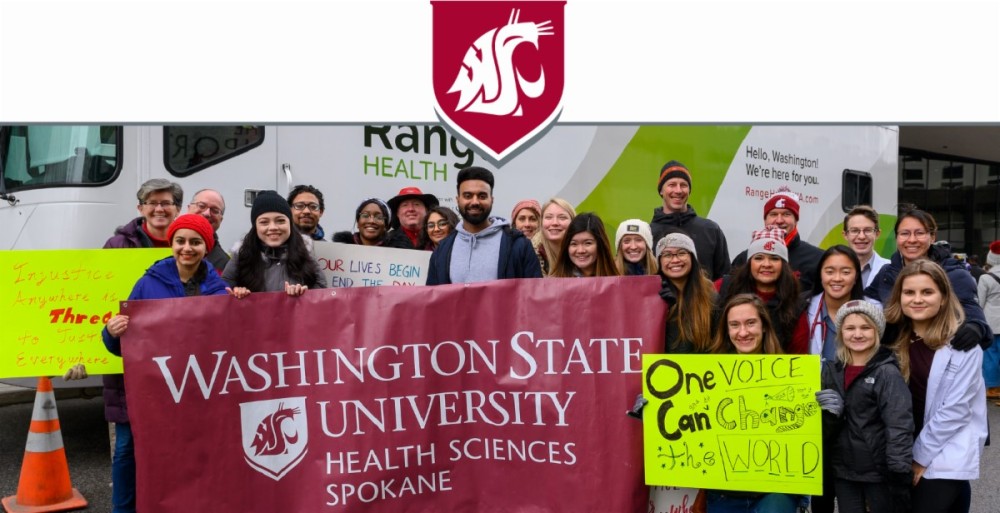WSU President's cabinet statement in wake of George Floyd and others
Wednesday, June 10, 2020

(as reported in the WSU Health Sciences Checkup Issue No 8, June 2020)
In the wake of numerous black lives being taken by those in power, we are feeling and witnessing distress among our campus community, in our neighborhoods and across the country. This is in response to an unjust system that has oppressed and exploited black people for hundreds of years.
The deaths of George Floyd, Breonna Taylor, Tony McDade, Ahmaud Arbery and countless others cry out for justice and a re-commitment to fight racism. How, as a society, can we still be so far from achieving racial justice? How, especially, do we acknowledge and respond to the ongoing racism suffered by black and historically minoritized students, faculty, staff, alumni, and community members? In the face of this ongoing adversity, what is our charge?
As a health sciences campus, our mission is steeped in helping and serving people. How can we apply this to eradicating racism? How can we help those, including our own, who are hurting?
The WSU President's cabinet issued an important statement on behalf of our WSU system that calls for self-examination in this time of tragedy.
In partnership with our colleges of Education, Medicine, Nursing and Pharmacy and Pharmaceutical Sciences, we want to echo this message and speak to what its means for our campus community. Please also know that our hope was to have this message out sooner, but it was important to consult with our campus community first to be inclusive of as many viewpoints as possible.
First, no matter how painful, we must not turn our heads from the injustices that are occurring. It is time to ask the hard questions of ourselves and others. We must reflect on our own failures. It is time to shine a light on the truths in our soul. It is time to be the change.
Second, as we look beyond our individual actions, it is time to embrace our duty of solidarity. Our campus community has much to offer collectively to protect our society from its legacy of unequal treatment—data and modeling on inequity and determinants that we have at our fingertips, the expertise and concern of our researchers, and the passion and commitment of our diverse faculty, staff, and students.
A few of these examples of how our campus contributes include Nursing's research on implicit bias, Medicine and Pharmacy's gender-affirming health care curriculum, and Medicine's research showing premature mortality is linked to race and socioeconomic deprivation.
Please let these examples drive your reflections on how we, as a campus, can improve inequality and share via this form. We will use these reflections in our planning moving forward.
The senseless loss of black lives is our reminder that we must not perpetuate our country's severe racial and class disparities. It is a time not just for reflection, but to foster an authentic space from which to act. We have to move toward positive, long-lasting change. As President Schulz stated, "Only then can we begin to truly erase the shadow on our country's soul."
Sincerely,
Daryll DeWald, Vice President and Chancellor of WSU Health Sciences Spokane
Mike Trevisan, Dean, College of Education
John Tomkowiak, Dean, Elson S. Floyd College of Medicine
Mel Haberman, Interim Dean, College of Nursing
Linda Garrelts-MacLean, Interim Dean, College of Pharmacy and Pharmaceutical Sciences